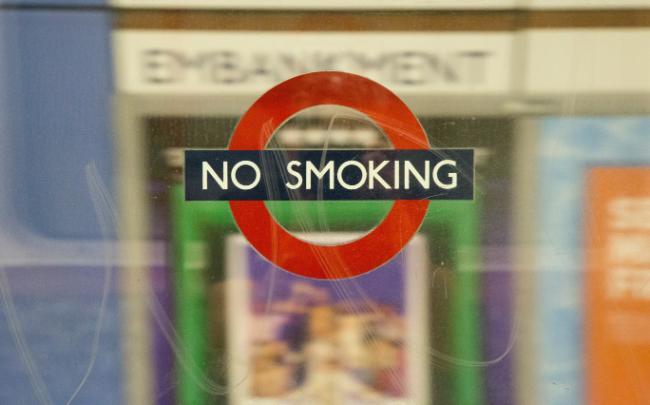Tuesday, 21 January, 2025
Researcher: Professor Patricia Fitzpatrick, UCD School of Public Health, Physiotherapy and Sports Science
Summary
Professor Fitzpatrick’s research findings impact all patients with cancer who smoke. Patients with cancer who smoke (up to 20% of all diagnosed) are not currently offered sufficient support to quit, despite evidence of the benefits of quitting after a cancer diagnosis. These benefits include improved treatment outcomes, fewer treatment complications, improved survival rates and positive effects on health. The impacts of Professor Fitzpatrick’s research are national and international; the research was adopted in full by the HSE National Cancer Control Programme and is a priority for 2024.
3,744 - 4,959 patients with cancer, and their families, will benefit each year. The research was reported in national media and a (opens in a new window)podcast on the research has been released by the European School of Oncology. The research team have published widely in academic and professional healthcare publications.
Research description
The benefits of quitting smoking after a cancer diagnosis are undervalued, despite substantial evidence. Continued smoking is associated with treatment complications and toxicities in the body, increased risk of recurrence, new smoking-related cancers of another type, lower survival and diminished quality of life. But many diagnosed with cancer continue smoking and do not receive support to help them stop.
This Irish Cancer Society-funded research was co-developed with cancer patients who smoke to develop a way to help them cease smoking. The project comprised a number of stages. At the outset of the project, Professor Fitzpatrick participated in a Patient Voice in Cancer Research Dragon’s Den event to present the study plan and seek input. The research team then established a steering committee and invited people with lived experience, academics and practice experts to take part. The research team published a rapid systematic review examining relevant practices to help patients stop smoking and analysed smoking rates among cancer patients using a national hospital discharge database (2014-2018). As well as this, Professor Fitzpatrick audited all 8 adult specialist cancer hospitals and the major radiotherapy centre against national clinical guidelines. The team completed interviews with patients attending four cancer hospitals and oncology healthcare professionals and the results were discussed at a Patient Voice in Cancer Research workshop.
The rapid systematic review identified no single optimal intervention designed to help smokers with a cancer diagnosis to quit. It identified there was often a lack of trained professionals who could provide this support; a similar lack of hospital smoking cessation officers and referral practices to smoking cessation services were also noted in the audit in some hospitals. The team found that although there has been a drop in smoking rates amongst the general population, smoking rates in patients with cancer have not fallen in line with this. Qualitative analysis of patient interviews found a willingness to be repeatedly approached and supported to quit, and it outlined the need for sustained, non-judgemental support across hospital and community settings and the importance of healthcare practitioners and family as facilitators of the process of quitting. Interviews with healthcare professionals identified the importance of prioritising the therapeutic relationship with patients while maintaining a willingness from them to discuss quitting. However, they also outlined challenges in starting the conversation given heavy workloads and a lack of knowledge around the relevant support services available.

Research impact
Health impact
Professor Fitzpatrick’s research findings were presented to Tobacco Free Ireland (TFI), the Irish Cancer Society and the National Cancer Control Programme (NCCP). Findings were consequently adopted by the NCCP, supported by TFI, and smoking cessation for cancer patients was made an NCCP priority for 2024 with a team assigned to lead on it. This will inform the next National Cancer Strategy.
The impact is greatest for patients attending Ireland’s 8 specialist cancer centres and associated radiotherapy centres. In 2016 the inpatient smoking rate was 15.1% in St Vincent’s University Hospital. However, findings elsewhere suggest 20% of patients with cancer smoke. Over 2018-2020, the National Cancer Registry reported the average number of patients with invasive cancer in Ireland as 24,793. Therefore, between 3,744 and 4,959 patients (15.1%-20%) and their families are set to benefit each year. Smoking cessation benefits family health by reducing passive smoking; the risk of lung cancer in a non-smoking spouse of a smoker is 15% and the risk of cardiovascular disease is up to 20%.
Educational impact
The team’s findings have been incorporated into postgraduate teaching in the School of Nursing, Midwifery and Health Systems in UCD with immediate impact. A student from the School of Medicine was also involved in some parts of this research and learned about conducting research.
Feedback from a Cancer Nursing student following placement with a smoking cessation officer in a cancer hospital said: “I realised on immediate reflection of my time with the officer that I have never been good at being upfront with patients who should advisably stop smoking. I am reluctant to upset patients and perhaps have felt in the past if I talk about smoking very openly it would upset them. I have become more confident in opening the conversation and less fearful of a negative reaction. I now have the discussion, and I am more confident speaking to them about nicotine replacement therapy and advising them about the HSE Quit.ie website”.
The European School of Oncology also created a (opens in a new window)podcast dedicated to the findings of the study. The team were asked to contribute two articles for (opens in a new window)Irish Pharmacy News in May 2023 called "Smoking Cessation for Patients with Cancer – the role of the Pharmacist" and "Smoking Cessation in 2023", which were circulated to all pharmacies in Ireland.
The team were also asked to contribute a further article for (opens in a new window)Hospital Professional News in May 2023 for circulation to all hospital professionals called "Smoking Cessation for Patients with Cancer – the role of the Pharmacist". The team were asked to contribute to the Hospital Inpatient Enquiry coding notes newsletter which was circulated to all hospitals in Ireland.

Academic impact
The research led to 6 published articles, the publication of a Prospero protocol, and presentations at 9 international and 11 national meetings. Abstracts of the research were published in the Lancet and European Journal of Public Health.
Social impact
The study findings have been reported in national print media and radio, including prominent Irish newspaper the (opens in a new window)Irish Independent and on the radio stations (opens in a new window)Spin 1038 and (opens in a new window)Classic Hits.
I finally gave up smoking thanks to this study, along with the help of the Mater Hospital smoking cessation team.
— Patient and Public Involvement panel member

